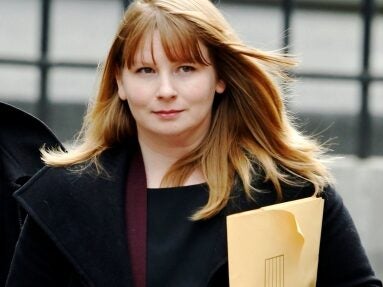
The National Union of Journalists is setting up chapels for BBC-funded local democracy reporters working at each of the major regional publishers.
The NUJ said becoming organised would help LDRs address issues such as “host” local newspapers supplying them with mobile phones and paying their expenses for taxis home after late-running council meetings.
Some also reported feeling “isolated” as they frequently find their newspaper is “unfamiliar with how the scheme should work” while the BBC is “reluctant to get involved”, the NUJ has said.
The union has already started a chapel for Reach-employed LDRs, is in the process of setting one up for JPI Media and is “looking at how best to set one up” for Newsquest employees.
The NUJ hosted a summit of LDRs which coincided with the publication of the first annual reports of the scheme last week from the BBC and News Media Association, which are in partnership for the scheme.
The organisations said the scheme has “already delivered significant levels of public interest journalism” and is “strengthening local journalism and the accountability of local public bodies, to the benefit of our democracy”.
The first LDR was appointed in Kent in January.
The reports said more than 30,000 stories have been published by 126 BBC-funded local democracy reporters this year, while the NMA said it wanted to increase the agreed target number from 145 to 200 as a matter of priority.
The NUJ said its meeting with reporters allowed them to share their experiences and discuss how they can organise as union members to take up a range of issues across the scheme in a collective way.
Other issues include stories not being published quickly enough, reporters being asked to do work beyond the remit of the role and not being correctly bylined as well as “certain publishers preferring lighter stories and trivia”.
The NUJ said it has been concerned that newspaper groups were taking on LDRs at the same as they were making redundancies. In one case a political reporter’s role was cut as an LDR was taken on.
The union said it has raised the issue with the BBC.
NUJ general secretary Michelle Stanistreet (pictured) added that many of the LDRs who attended the summit had not received a pay rise as part of their contract, as stipulated by the BBC.
There are also concerns some LDRs are not being paid the agreed minimum salary by their host newspaper.
But, there was a positive message in line with the BBC and NMA too. The NUJ said: “The overall message from the LDRs at the summit was that they were producing important stories and were appreciated by readers.
“One LDR said despite the frustrations thrown up by the way the scheme was being run, she knew that she was fulfilling an important role in holding local authorities to account.”
A BBC spokesperson said: “We’re pleased the reporters questioned here recognise they are doing important work and enjoy their jobs.
“They are not employed or managed by us, but we take steps to ensure the service is running correctly and we have regular meetings with providers.
“The first annual review of the partnerships found the reporters, their employers, other news partners and audiences were positive about the service.
“This is a large, complex and unique project, which we think is working well.”
Email pged@pressgazette.co.uk to point out mistakes, provide story tips or send in a letter for publication on our "Letters Page" blog
